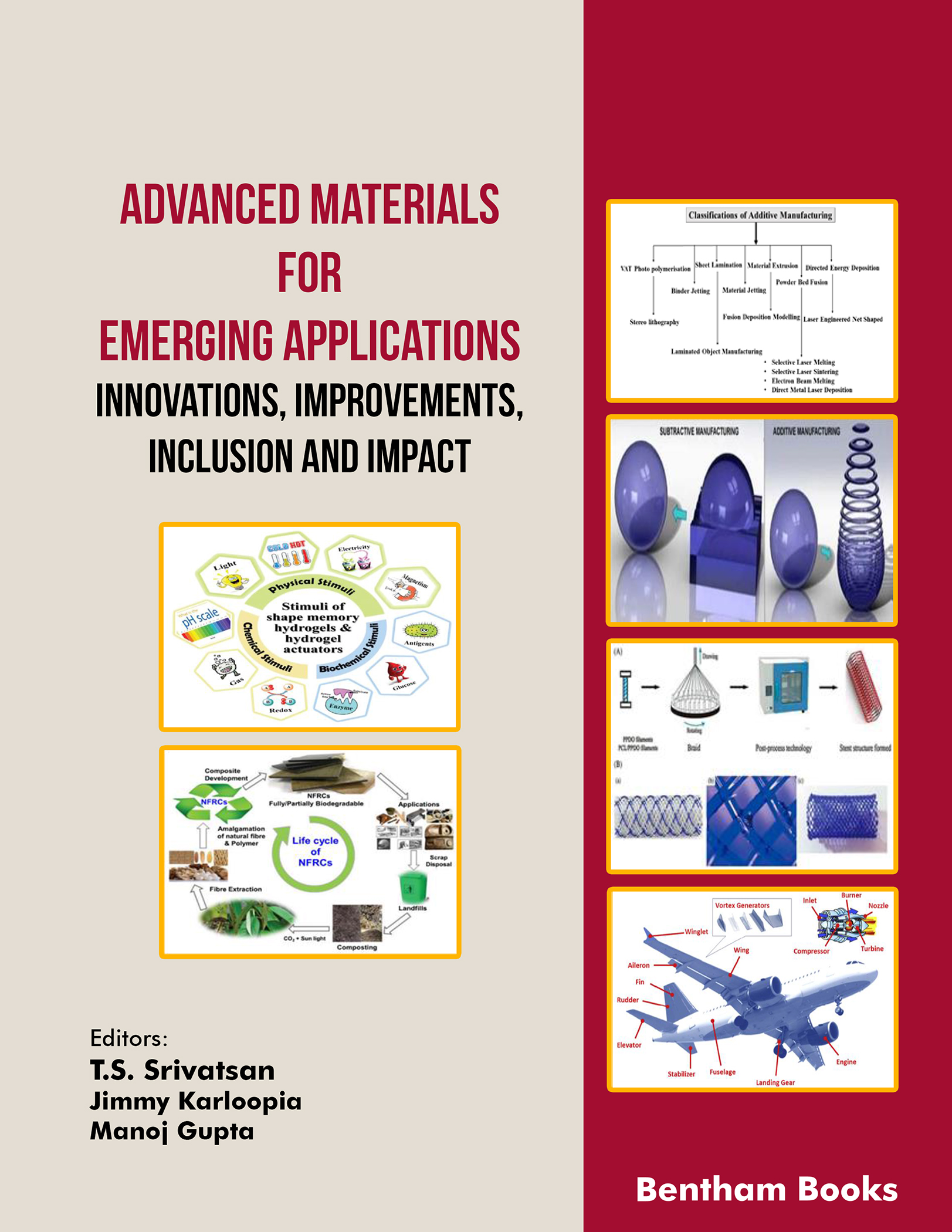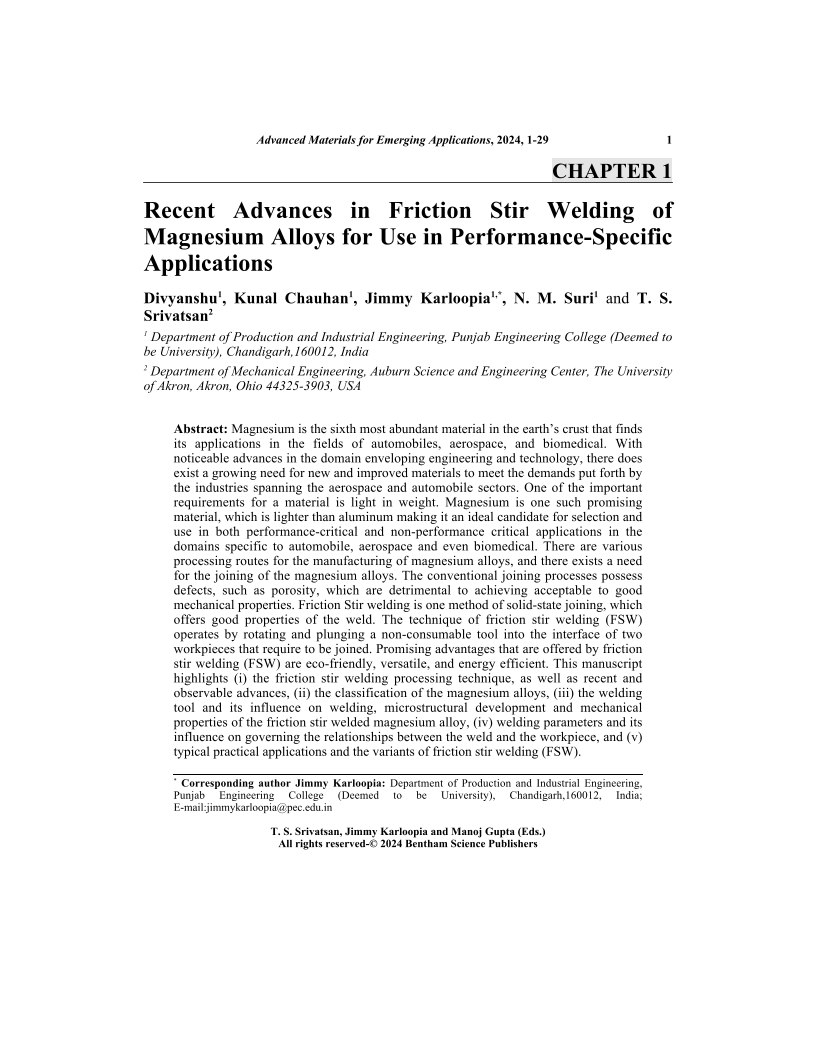Recent Advances in Friction Stir Welding of Magnesium Alloys for Use in Performance-Specific Applications

- Authors: Divyanshu1, Kunal Chauhan2, Jimmy Karloopia3, N. M. Suri4, T. S. Srivatsan5
-
View Affiliations Hide Affiliations1 Department of Production and Industrial Engineering, Punjab Engineering College (Deemed to be University), Chandigarh, 160012, India 2 Department of Production and Industrial Engineering, Punjab Engineering College (Deemed to be University), Chandigarh, 160012, India 3 Department of Production and Industrial Engineering, Punjab Engineering College (Deemed to be University), Chandigarh, 160012, India 4 Department of Production and Industrial Engineering, Punjab Engineering College (Deemed to be University), Chandigarh, 160012, India 5 Department of Mechanical Engineering, Auburn Science and Engineering Center, The University of Akron, Akron, Ohio 44325 3903, USA
- Source: Advanced Materials for Emerging Applications (Innovations, Improvements, Inclusion and Impact) , pp 1-29
- Publication Date: May 2024
- Language: English
Recent Advances in Friction Stir Welding of Magnesium Alloys for Use in Performance-Specific Applications, Page 1 of 1
< Previous page | Next page > /docserver/preview/fulltext/9789815196771/chapter-1-1.gif
Magnesium is the sixth most abundant material in the earths crust that finds its applications in the fields of automobiles, aerospace, and biomedical. With noticeable advances in the domain enveloping engineering and technology, there does exist a growing need for new and improved materials to meet the demands put forth by the industries spanning the aerospace and automobile sectors. One of the important requirements for a material is light in weight. Magnesium is one such promising material, which is lighter than aluminum making it an ideal candidate for selection and use in both performance-critical and non-performance critical applications in the domains specific to automobile, aerospace and even biomedical. There are various processing routes for the manufacturing of magnesium alloys, and there exists a need for the joining of the magnesium alloys. The conventional joining processes possess defects, such as porosity, which are detrimental to achieving acceptable to good mechanical properties. Friction Stir welding is one method of solid-state joining, which offers good properties of the weld. The technique of friction stir welding (FSW) operates by rotating and plunging a non-consumable tool into the interface of two workpieces that require to be joined. Promising advantages that are offered by friction stir welding (FSW) are eco-friendly, versatile, and energy efficient. This manuscript highlights (i) the friction stir welding processing technique, as well as recent and observable advances, (ii) the classification of the magnesium alloys, (iii) the welding tool and its influence on welding, microstructural development and mechanical properties of the friction stir welded magnesium alloy, (iv) welding parameters and its influence on governing the relationships between the weld and the workpiece, and (v) typical practical applications and the variants of friction stir welding (FSW).
-
From This Site
/content/books/9789815196771.chapter-1dcterms_subject,pub_keyword-contentType:Journal -contentType:Figure -contentType:Table -contentType:SupplementaryData105

